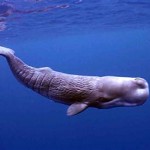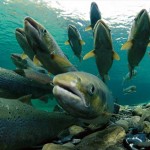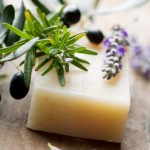Oil spill & toxins in the Ocean
I have been watching the news about the BP oil spill and all the aftermath and devastation in the Gulf of Mexico. It breaks my heart to see the livelihood and wildlife so negatively affected.
This is not a fun, glamorous or joyous subject to talk about, but I feel it needs to be addressed.
Oil is only one of many contaminants infiltrating our oceans and sea life. Other contaminants are invisibly seeping in to our water ways and sea life. I just read a study that was recently completed showing the effects from other industrial pollutants on our sea life. 
The study was released this week by biologist Roger Payne, founder and president of Ocean Alliance, showing that our ocean’s whales have absorbed an alarming amount of toxins into their system. The study was conducted over a span of 5 years, and sampled almost 1000 whales.
These toxins are by-products from production of items such as leather, stainless steel, and various metals, etc. The study shows that the pollutants; cadmium, aluminum, chromium, lead, silver, mercury and titanium are being absorbed into the whale’s systems thousands of miles away from where the pollutants originated.
Chromium, a cancer causing pollutant in humans “was found in all but two of the 361 sperm whale samples tested”. Now let’s think about this…a whale is at the top of the food chain in the ocean, so are many fish people eat such as tuna, swordfish, and mackerel. These are the fish that accumulate the most toxins!!!!! It really shows us the damage that can be done to our own wildlife and food supply.
I’m not telling you all of this to scare you….
I’m sharing this information so you know all the facts and can make educated decisions about the way you live, work, and eat.
If you are a pesco-vegetarian, than knowing this information can be very important to your HEALTH.
Mercury is a chemical we have all heard of and have been warned about, but check out this alarming concentration the researchers discovered. “The researchers found mercury as high as 16 parts per million in the whales.” Swordfish typically has levels of about 1 part per million. Mercury contaminants over 0.5 parts per million is considered highl amounts. These numbers come from the FDA and the EPA.
Fish that contain the highest mercury levels and are to be avoided:
- Mackerel (King)
- Marlin
- Orange Roughy
- Shark
- Swordfish
- Tilefish
- Tuna
- Ahi
High levels of mercury exposure is known to cause immune disorders, alters genetics and enzyme systems, damages the nervous system, tremors, damages gastrointestinal tract and it’s especially damaging to developing embryos.
We need to be more careful as a society about what we consume and how we dispose of it. We are essentially poisoning ourselves!
So what are the positive things we can do? Here are some helpful tips on how to choose seafood IF you are pesco vegetarian;
 1. Limit the consumption of large seafood – they absorb the most toxins
1. Limit the consumption of large seafood – they absorb the most toxins
2. Chose low on the food chain seafood – eg. Anchovies, pollock, catfish, fresh water, trout, sole, sardines, and oysters. They have shorter life spans and reproduce more readily.
3. DO NOT buy farmed Salmon. Sometimes referred to as “Atlantic Salmon” they are raised in crowded and unhealthy conditions and may contain high levels of PCB’s.
4. When thinking about buying seafood at the market, or at a restaurant refer to a Seafood Watch pocket guide such as this one from Monterey Bay Aquarium
AND more importantly, here are some PREVENTATIVE – and not so obvious – measures we can take to insure we have healthy long lasting ocean life!
1. Don’t wash it down the drain – city sewer lines get blocked from grease, excessive food waste, and trash, and cause sewage overflows into the ocean
2. Use natural personal care and laundry products – Waste-water treatment plantsare not equipped to f ilter out these types of chemicals.
ilter out these types of chemicals.
3. Be a green cleaner – Use nontoxic cleaning products and paints over a drop cloth. Recycle used oil, and schedule regular maintenance to avoid fuel and lubricant leaks.
4. Cut up fishing line, string, and rope before throwing it away, and never let balloons fly away – Seabirds and other creatures can get tangled in lines, and marine mammals often mistake balloons for food.
5. Don’t flush unused or expired medications – Hormones, antidepressants, painkillers, and other drugs are showing up in our water supply and harming aquatic life. Crush unused pills and throw them away in kitty litter, used coffee grounds, or other unpalatable items.
6. Use only natural lawn products, and plant trees and shrubs around your property to lessen erosion – About 60 percent of soil that is washed away ends up in waterways, bringing pesticides, and fertilizer, with it
7. Don’t use antibacterial soap – Its most common ingredient, triclosan, is not completely removed during waste-water treatment, and is toxic to marine organisms. FYI- A.B. Soap is not healthy for your skin or immune system.
Join me in the effort to live more consciously. I’m excited to see what we can do to make a difference!
Kardena Pauza
Author of Easy Veggie Meal Plans
Isn’t it ridiculous that one of the foods that has been touted as so healthy for us can barely be eaten at this point? I’m not sure at the numbers of people who eat enough fish to really hurt themselves, but I always tell my clients to buy wild Alaskan salmon and other wild and organic fish if they are going to buy it at all to reduce their chances of exposure.
Thanks for the great article.
Susan
Good point Susan.
Oil spills happen naturally around offshore drilling rigs- in fact, it happens everyday. That’s one thing I’ve learned from a visit to a local oil plant near the sea last year (which I’m not at the liberty to say where). Off-shore drilling is really bad for the environment and the only way to get rid of the pollution coming from it is to put an end to off-shore drilling itself. Check this video out: http://youtu.be/xyH957EEXWE
Great point about 50% of the oxygen we breath coming from the ocean. Great reminder to take care of our oceans for another HUGE reason.
Thanks for sharing!